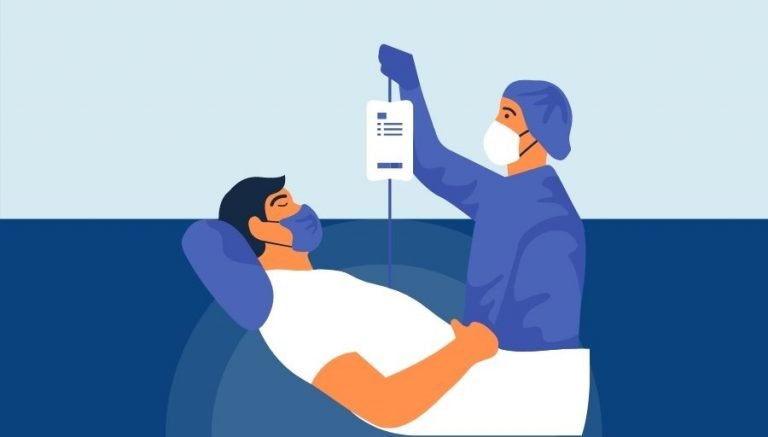Neurocognitive Disorders – Definitions & ICD 11 Codes
Definition of Neurocognitive Disorders: Neurocognitive disorders are characterised by primary clinical deficits in cognitive functioning that are acquired rather than developmental. That is, neurocognitive disorders do not include disorders characterised by deficits in cognitive function that are present from birth or that arise during the developmental period, which are classified in the grouping neurodevelopmental disorders. Rather, neurocognitive disorders represent a decline from a previously attained level of functioning. Although cognitive deficits are present in many mental disorders (e.g., schizophrenia, bipolar disorders), only disorders whose core features are cognitive are included in the neurocognitive Disorders grouping. In cases where the underlying pathology and etiology for neurocognitive disorders can be determined, the identified etiology should be classified separately.
Coded Elsewhere:
- Secondary neurocognitive syndrome (6E67)
Delirium
Definition of Delirium: Delirium is characterized by a disturbance of attention, orientation, and awareness that develops within a short period of time, with transient symptoms that may fluctuate depending on the underlying causal condition or etiology. Delirium often includes disturbance of behavior and emotion, and may include impairment in multiple cognitive domains. A disturbance of the sleep-wake cycle, including reduced arousal of acute onset or total sleep loss with reversal of the sleep-wake cycle, may also be present. Delirium may be caused by the direct physiological effects of a medical condition not classified under mental, behavioural, or neurodevelopmental disorders, or of a substance or medication, including withdrawal, or by multiple or unknown etiological factors.
ICD 11 Code For Delirium
6D70 Delirium
6D70.0 Delirium due to disease classified elsewhere
Definition of Delirium due to disease classified elsewhere: All definitional requirements for delirium are met. There is evidence from history, physical examination, or laboratory findings that Delirium is caused by the direct physiological consequences of a disorder or disease classified elsewhere.
Coding Note:
- Identified etiology should be classified separately.
6D70.1 Delirium due to psychoactive substances including medications
Definition of Delirium due to psychoactive substances including medications: All definitional requirements for delirium are met. There is evidence from history, physical examination, or laboratory findings that the delirium is caused by the direct physiological effects of a substance or medication (including withdrawal). If the specific substance inducing the delirium has been identified, it should be classified using the appropriate subcategory (e.g., alcohol-induced delirium).
Coded Elsewhere:
- Alcohol-induced delirium (6C40.5)
- Cannabis-induced delirium (6C41.5)
- Synthetic cannabinoid-induced delirium (6C42.5)
- Opioid-induced delirium (6C43.5)
- Sedative, hypnotic or anxiolytic-induced delirium (6C44.5)
- Cocaine-induced delirium (6C45.5)
- Stimulant-induced delirium including amphetamines, methamphetamine or methcathinone (6C46.5)
- Synthetic cathinone-induced delirium (6C47.5)
- Hallucinogen-induced delirium (6C49.4)
- Volatile inhalant-induced delirium (6C4B.5)
- MDMA or related drug-induced delirium, including MDA (6C4C.5)
- Dissociative drug-induced delirium including ketamine or PCP (6C4D.4)
- Delirium induced by other specified psychoactive substance including medications (6C4E.5)
- Delirium induced by unknown or unspecified psychoactive substance (6C4G.5)
- Delirium induced by multiple specified psychoactive substances including medications (6C4F.5)
6D70.2 Delirium due to multiple etiological factors
Definition of Delirium due to multiple etiological factors: All definitional requirements for delirium are met. There is evidence from history, physical examination, or laboratory findings that the delirium is attributable to multiple etiological factors, which may include disorders or diseases not classified under mental and behavioural disorders, substance intoxication or withdrawal, or a medication.
Coding Note:
- Identified etiologies should be classified separately.
6D70.3 Delirium due to unknown or unspecified aetiological factors
Definition of Delirium due to unknown or unspecified aetiological factors: All definitional requirements for delirium are met. The specific aetiology of the delirium is unspecified or cannot be determined.
6D70.Y Delirium other specified cause
6D70.Z Delirium unspecified or unknown cause
Mild neurocognitive disorder
Definition of Mild neurocognitive disorder: Mild neurocognitive disorder is characterised by the subjective experience of a decline from a previous level of cognitive functioning, accompanied by objective evidence of impairment in performance on one or more cognitive domains relative to that expected given the individual’s age and general level of intellectual functioning that is not sufficiently severe to significantly interfere with independence in the person’s performance of activities of daily living. The cognitive impairment is not entirely attributable to normal aging. The cognitive impairment may be attributable to an underlying disease of the nervous system, a trauma, an infection or other disease process affecting specific areas of the brain, or to chronic use of specific substances or medications, or the etiology may be undetermined.
ICD 11 Code For Mild neurocognitive disorder
6D71 Mild neurocognitive disorder
Coding Note:
- Code also the causing condition
Amnestic disorder
Definition of Amnestic disorder: Amnestic disorder is characterized by prominent memory impairment relative to expectations for age and general level of intellectual or global cognitive ability, in the absence of other significant cognitive impairment, which represents a decline from the individual’s previous level of functioning. It is manifested by a deficit in acquiring, learning, and/or retaining new information and may include the inability to recall previously learned information, without disturbance of consciousness, altered mental status, or delirium. Recent memory is typically more disturbed than remote memory, and the ability to immediately recall a limited amount of information is usually relatively preserved. The impairment is not due to current substance intoxication or withdrawal. The disorder is presumed to be attributable to an underlying neurological condition, event, trauma, infection, tumour, or other disease process affecting specific areas of the brain, or to chronic use of specific substances or medications.
ICD 11 Code For Amnestic disorder
6D72 Amnestic disorder
Exclusions:
- Delirium (6D70)
- Dementia (BlockL2‑6D8)
- Mild neurocognitive disorder (6D71)
6D72.0 Amnestic disorder due to diseases classified elsewhere
Definition of Amnestic disorder due to diseases classified elsewhere: All definitional requirements for amnestic disorder are met. The memory symptoms are judged to be the direct pathophysiological consequence of a medical condition not classified under mental, behavioural and neurodevelopmental disorders, based on evidence from the history, physical examination, or laboratory findings. The symptoms are not better explained by Delirium, Dementia, another mental disorder (e.g., Schizophrenia or Other Primary Psychotic Disorder, a Mood Disorder) or the effects of a medication or substance, including withdrawal effects. The symptoms are sufficiently severe to be a specific focus of clinical attention. The identified etiological medical condition should be classified separately.
Coding Note:
- Code also the causing condition
Exclusions:
- amnesia: retrograde (MB21.11)
- Korsakoff syndrome, alcohol-induced or unspecified (8D44)
- Dissociative amnesia (6B61)
- Anterograde amnesia (MB21.10)
- amnesia NOS (MB21.1)
6D72.1 Amnestic disorder due to psychoactive substances including medications
Definition of Amnestic disorder due to psychoactive substances including medications: All definitional requirements for amnestic disorder are met. The memory symptoms are judged to be the direct consequence of psychoactive substance use. The intensity and duration of substance use must be known to be capable of producing memory impairment. The memory impairment may develop during or soon after substance intoxication or withdrawal, but its intensity and duration are substantially in excess of those normally associated with these conditions. The symptoms are not better accounted for by another disorder or medical condition, as might be the case if the amnestic symptoms preceded the onset of substance use.
Coding Note:
- Code also the causing condition
6D72.10 Amnestic disorder due to use of alcohol
Definition of Amnestic disorder due to use of alcohol: All definitional requirements for amnestic disorder are met. The memory symptoms are judged to be the direct consequence of alcohol use. The intensity and duration of alcohol use must be known to be capable of producing memory impairment. The memory impairment may develop during or soon after alcohol intoxication or withdrawal, but its intensity and duration are substantially in excess of those normally associated with these conditions. The symptoms are not better accounted for by another disorder or medical condition, as might be the case if the amnestic symptoms preceded the onset of the alcohol use.
Coding Note:
- This category should not be used to describe cognitive changes due to thiamine deficiency associated with chronic alcohol use.
Exclusions:
- Korsakoff syndrome (5B5A.11)
- Wernicke-Korsakoff Syndrome (5B5A.1)
6D72.11 Amnestic disorder due to use of sedatives hypnotics or anxiolytics
Definition of Amnestic disorder due to use of sedatives hypnotics or anxiolytics: All definitional requirements for amnestic disorder are met. The memory symptoms are judged to be the direct consequence of use of sedatives, hypnotics or anxiolytics. The intensity and duration of use of sedatives, hypnotics or anxiolytics must be known to be capable of producing memory impairment. The memory impairment may develop during or soon after sedative, hypnotic or anxiolytic intoxication or withdrawal, but its intensity and duration are substantially in excess of those normally associated with these conditions. The symptoms are not better accounted for by another disorder or medical condition, as might be the case if the amnestic symptoms preceded the onset of use of sedatives, hypnotics or anxiolytics.
Coding Note:
- Code also the causing condition
6D72.12 Amnestic disorder due to other specified psychoactive substance including medications
Definition of Amnestic disorder due to other specified psychoactive substance including medications: All definitional requirements for amnestic disorder are met. The memory symptoms are judged to be the direct consequence of use of a specified psychoactive substance other than alcohol; sedatives, hypnotics or anxiolytics; or volatile inhalants. The intensity and duration of use of the specified psychoactive substance must be known to be capable of producing memory impairment. The memory impairment may develop during or soon after specified psychoactive substance intoxication or withdrawal, but its intensity and duration are substantially in excess of those normally associated with these conditions. The symptoms are not better accounted for by another disorder or medical condition, as might be the case if the amnestic symptoms preceded the onset of the specified psychoactive substance.
6D72.13 Amnestic disorder due to use of volatile inhalants
Definition of Amnestic disorder due to use of volatile inhalants: All definitional requirements for amnestic disorder are met. The memory symptoms are judged to be the direct consequence of use of volatile inhalants. The intensity and duration of use of volatile inhalants must be known to be capable of producing memory impairment. The memory impairment may develop during or soon after volatile inhalant intoxication or withdrawal, but its intensity and duration are substantially in excess of those normally associated with these conditions. The symptoms are not better accounted for by another disorder or medical condition, as might be the case if the amnestic symptoms preceded the onset of use of volatile inhalants.
6D72.2 Amnestic disorder due to unknown or unspecified aetiological factors
Definition of Amnestic disorder due to unknown or unspecified aetiological factors: All definitional requirements for amnestic disorder are met. The specific etiology of the disorder is unspecified or cannot be determined.
6D72.Y Amnestic disorder other specified cause
6D72.Z Amnestic disorder unknown or unspecified cause








